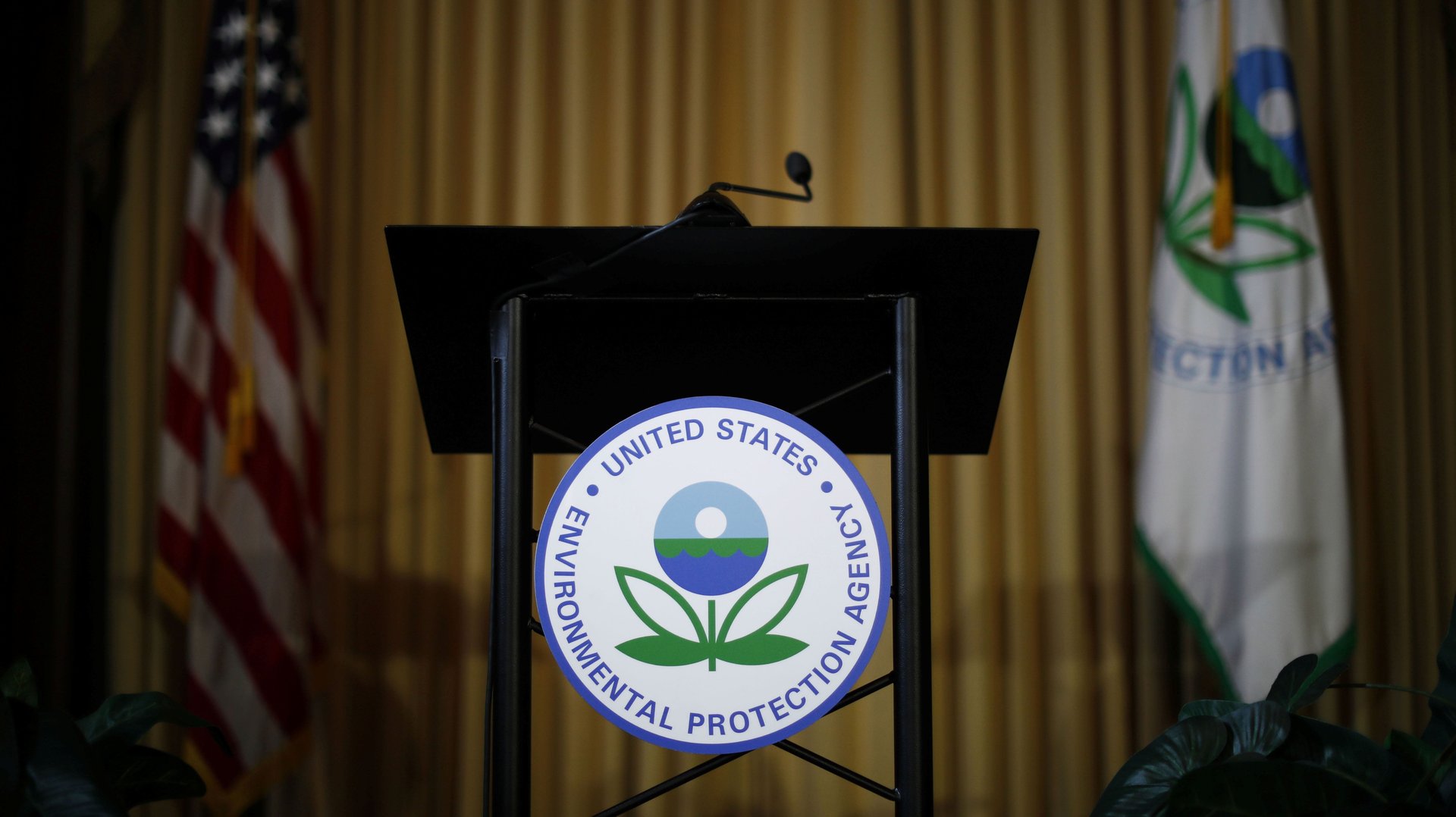The EPA just revealed that staffers destroyed files under audit
Employees at the US Environmental Protection Agency (EPA) destroyed records they knew were being audited, a new memo posted to a government database reveals.


Employees at the US Environmental Protection Agency (EPA) destroyed records they knew were being audited, a new memo posted to a government database reveals.
According to the memo written by the agency’s inspector general (IG), the staffers worked for the EPA’s chief financial officer, Donald Trump appointee Holly Greaves. Per her official bio, the mission of Greaves’ team is “to ensure the effective management and financial integrity of EPA’s resources and annual budget, which was $8.8 billion in fiscal year 2018.”
The missing documents include notes and a spreadsheet regarding security controls protecting EPA budget data, the IG memo says.
“This is a new example of an agency throwing sand in the face of an inspector general when it’s trying to conduct oversight,” Nick Schwellenbach, director of investigations at the nonpartisan Project on Government Oversight, told Quartz. “It’s especially bad when officials with special responsibilities for upholding agency integrity—such as those working for the chief financial officer—undermine oversight.”
A spokeswoman for the EPA inspector general’s office declined to elaborate on details of the incident, saying, “As the audit is still ongoing, we cannot discuss specifics.” An EPA spokesman said, “We are looking into the IG’s report. EPA is highly supporting of records management policies and strives for full compliance.”
Why what’s missing matters
The IG’s memo points out that the audit began more than a year ago, and it was well-known that the records in question were “squarely in the realm of information subject to disclosure.” It continues, “We are concerned that the [CFO’s office] acted incorrectly,” explaining that without the missing files, there is no way of knowing whether or not the EPA “analyzed the impact of the 180 vulnerabilities identified” in the cloud-based “budget formulation system” by the IG’s office.
EPA personnel within the CFO’s office claimed they destroyed the records because they had signed non-disclosure agreements prohibiting them from sharing official documents with outside third parties. Inspectors general, however, are entitled by law to access all agency information.
Jonathan Gant of international anti-corruption watchdog Global Witness said he had never encountered an instance of federal employees destroying official documents while under audit. By general auditing standards, as well as the government’s own rules, he said “such an act would be wrong or illegal.”
“It seems like it would anger even the most casual reader that officials are heading to the shredder when the inspector comes calling,” Gant told Quartz.
Double standard for Trump team?
Before he became president, Trump’s companies routinely destroyed records “in defiance of court orders,” Newsweek reported in 2016. His penchant for opacity informs his governing style.
Last week, three Democratic congressmen wrote to the White House saying that the president had “failed to provide any response” to a letter they sent in February “requesting basic information about whether the president in fact destroyed records relating to his conversations with president Putin—in violation of the Presidential Records Act—or if he did not, where those records are currently located.”
In January, the Project on Government Oversight appealed to then-acting defense secretary Patrick Shanahan after Trump used a cabinet meeting to express “dismay at the IGs who “[go] over there and…do a report on every single thing that’s happening, and [then] release it to the public,” executive director Danielle Brian wrote. “He explained that ‘the public means the enemy,’ who ‘[reads] those reports [and] studies every line of it,’ and that these reports should be ‘private’ and ‘locked up.’ To further emphasize his apparent displeasure, the President called this situation ‘insane,’ and then directed the following comment to you: ‘And I don’t want it to happen anymore, Mr. Secretary. You understand that.’”
Similar situations during the Obama years incensed conservatives.
“From secret, unidentifiable email addresses to destroyed records to far-left pressure groups funded by billionaire progressives, the EPA has something to hide,” read a 2015 headline on The Blaze, the website started by Glenn Beck. “And they’ll try to take down anyone who dares demand transparency.”
The year before, the Competitive Enterprise Institute (CEI), a Washington, DC think tank with a history of climate denial, sued the EPA over the unexplained destruction of federal records—in this case, deleted text messages.
“US law states agencies must notify the national archivist of the unlawful alteration or destruction of records and must try to recover those records with the help of the attorney general,” CEI senior fellow and attorney Christopher Horner said at the time. “Instead of cooperating on this clear violation of the law, the EPA is simply denying it.” (Horner later became a member of Trump’s EPA transition team.)
And attorney Daniel Epstein, now associate counsel to Trump, once called for the Department of Homeland Security’s IG to be fired because, among other things, he disregarded federal transparency regulations, including having “removed or destroyed records.”
Greaves’ office has until March 23 to respond to the EPA inspector general’s accusations.